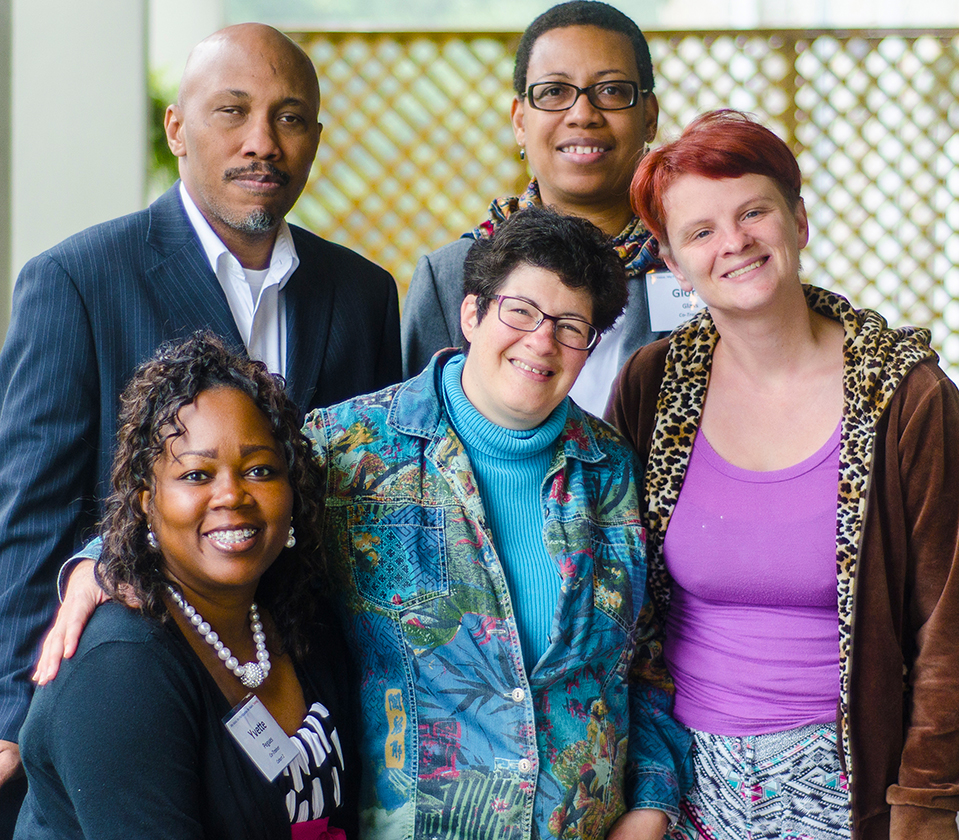Why It Matters
Disability rights are human rights. Everyone deserves to be included and live a full life in their community — accessing the same public spaces, housing opportunities, education, and work as anyone else. Many people with IDD experience multiple risk factors for human and civil rights violations. We emphasize that all are entitled to human and civil rights regardless of age; gender; race/ethnicity; sexual orientation; cultural, linguistic, geographic, and spiritual diversity; economic status; severity of disability; intensity of needed supports; and other factors that expose them to increased risk of rights violations.
A key advancement in the recognition of the civil rights of people with IDD was the enactment of the Americans with Disabilities Act (ADA) of 1990. This civil rights law seeks to eliminate discrimination against people based on their disabilities in employment, state and local government services, privately operated public accommodations (hotels, restaurants, stores, museums, etc.), transportation, and telecommunications. Great strides have been made in our society, but discrimination still exists. Attitudes, poor enforcement of the law, underfunded programs, and fiscal difficulties in state and local government budgets all contribute to the ongoing need to be vigilant advocates for full inclusion and equality.
Since the ADA became law of the land, many other landmark civil rights laws and actions have impacted the lives of people with IDD. Another milestone in the inclusion of people with disabilities in all aspects of life was the 1999 landmark Olmstead v. L.C. Supreme Court decision. The ruling requires states to eliminate unnecessary segregation of people with disabilities and to ensure that they receive services in the most integrated setting appropriate to their needs.
Finally, the right to vote is a key civil right and one that people with IDD exercise to be a part of our democracy. Ensuring voting independence, accuracy, and access continue to be key issues. Too many polling places and voting technology and practices throughout the country remain inaccessible and continue to disenfranchise voters.
What The Arc Is Doing
The Arc works to promote and protect hard-won civil rights protections. We pull up a seat at the table at every opportunity where implementation or enforcement of civil rights laws comes under attack, revision, or improvement.
Our Policy Goals
The Arc’s Public Policy Goals outline recommendations on promoting and protecting the civil rights of people with IDD, and our commitment to rights is core to every topic we advocate on at the federal level.
Our Coalition Work
The CCD Rights Task Force advocates on a wide variety of matters involving the civil rights of individuals with disabilities.
How You Can Help
There are many ways to advocate with and support The Arc’s grassroots movement.
DONATE
Help strengthen our policy advocacy efforts to protect critical programs.
GET INVOLVED
Find and connect with your local or state chapter of The Arc.
















